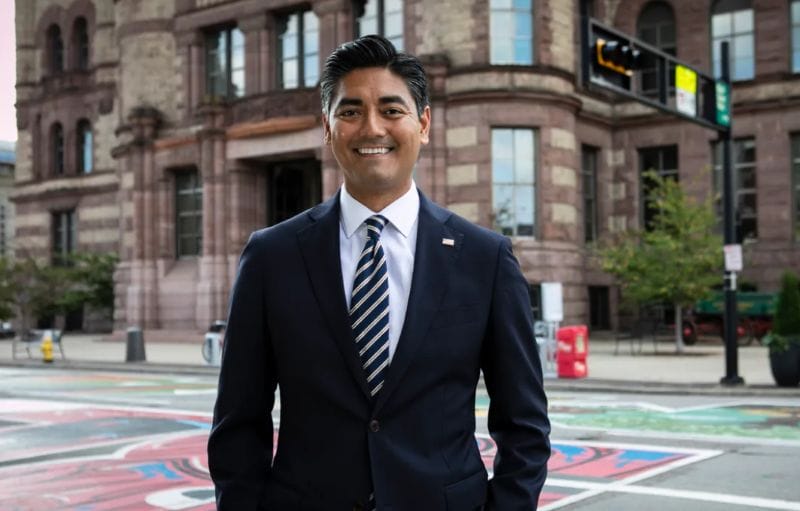Housing and Hope in Cincinnati


By Anthony Flint, March 17, 2023
In Cincinnati lately, good fortune extends well beyond the Bengals, the city’s football team, which has consistently been making the playoffs. The population is growing after years of decline, companies are increasingly interested thanks to its strategic location, and there’s even talk of southwestern Ohio becoming a climate haven.
But any resurgence in a postindustrial legacy city comes with downsides, as newly elected Cincinnati Mayor Aftab Pureval has been discovering: the potential displacement of established residents, and affordability that can vanish all too quickly.
One of Pureval’s first moves was to collaborate with the Port of Greater Cincinnati Development Authority to buy nearly 200 rental properties in low- and moderate-income neighborhoods, outbidding more than a dozen institutional investors that have been snapping up homes to rent them out for high profits. That sent an important signal, Pureval said in an interview for the Land Matters podcast: transitioning neighborhoods will be protected from the worst outcomes of market forces in play in Cincinnati.
“These out-of-town institutional investors … have no interest, frankly, in the wellbeing of Cincinnati or their tenants, buying up cheap single-family homes, not doing anything to invest in them, but overnight doubling or tripling the rents,” he said, noting a parallel effort to enforce code violations at many properties. “If you’re going to exercise predatory behavior in our community, well, we’re not going to stand for it, and we’re coming after you.”
Pureval, the half-Indian, half-Tibetan son of first-generation Americans, said affordability and displacement were his biggest concerns as Cincinnati—along with Pittsburgh, Cleveland, and other cities hard hit by steep declines in manufacturing and population—gets a fresh look as a desirable location. Cincinnati scored in the top 10 of cities least impacted by heat, drought, and sea-level rise in a recent Moody’s report.
“Right now, we are living through, in real-time, a paradigm shift,” spurred on by the pandemic and concerns about climate change, he said. “The way we live, work, and play is just completely changing. Remote work is … altering our economy and lifestyle throughout the entire country but particularly here in the Midwest. What I am convinced of due to this paradigm shift is because of climate change, because of the rising cost of living on the coast, there will be an inward migration.”
But, he said, “We have to preserve the families and the legacy communities that have been here, in the first place. No city in the country has figured out a way to grow without displacing. The market factors, the economic factors are so profound and so hard to influence, and the city’s resources are so limited. It’s really, really difficult.”
Joining a chorus of others all around the U.S., Pureval also said he supports reforming zoning and addressing other regulatory barriers that hinder multi-family housing and mixed-use and transit-oriented development.
An edited version of this interview will appear in print and online as part of the Mayor’s Desk series, our interviews with innovative chief executives of cities from around the world.
You can listen to the show and subscribe to Land Matters on Apple Podcasts, Google Podcasts, Spotify, Stitcher, or wherever you listen to podcasts.
The show in its entirety can also be viewed as a video at the Lincoln Institute’s YouTube channel.
Anthony Flint is a senior fellow at the Lincoln Institute of Land Policy, host of the Land Matters podcast, and a contributing editor of Land Lines.
Lead image: Cincinnati Mayor Aftab Pureval. Credit: © Amanda Rossmann – USA TODAY NETWORK.
Further Reading
A Bid for Affordability: Notes from an Ambitious Housing Experiment in Cincinnati (Land Lines)
Activist House Flippers Take On Wall Street to Keep Homes From Investors (Wall Street Journal)
Meet Cincinnati Mayor Aftab Pureval (SpectrumNews1)
They Told Him to Change His Name. Now Crowds Are Shouting It. (Politico)
Which U.S. cities will fare best in a warming world—and which will be hit hardest? (Washington Post)
